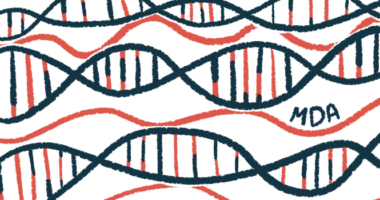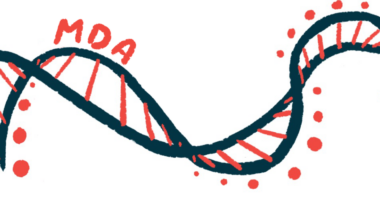MDA launches gene therapy support network for SMA, other NMDs
New GTx program aims to help educate, support patients and families

The Muscular Dystrophy Association (MDA) has opened the MDA Gene Therapy Support Network — a new program it’s dubbed GTx — to aid and educate families living with spinal muscular atrophy (SMA) or other neuromuscular diseases (NMDs) who may be considering a gene therapy as part of their treatment.
Over the last half century, the MDA has invested more than $125 million in the development of gene therapies such as Zolgensma (onasemnogene abeparvovec-xioi), an SMA treatment approved in the U.S. for children up to age 2 with all SMA types.
With new gene therapies in the pipeline for SMA and other neuromuscular diseases, including a first gene therapy now under regulatory review for Duchenne muscular dystrophy, the MDA is seeking to facilitate treatment access and provide the NMD community with support and education.
“The Gene Therapy Support Network and the advances it represents are more than 70 years in the making; MDA pioneered the genetic research that has brought us to this exciting moment in time for families impacted by neuromuscular disease,” Donald S. Wood, PhD, MDA president and CEO, said in a press release.
“Through MDA GTx, we will offer expert one-on-one direct support for our community to navigate the complexities of new and emerging gene therapies. MDA GTx will include clinical networking to support ongoing clinical collaboration throughout the MDA Care Center Network, long-term individual and family support and best practice sharing between our clinics,” Wood said.
First GTx event, a free webinar, slated for June 15
On June 15, GTx will present the first in a series of free family educational events: a webinar titled “MDA Virtual Learning: Gene Therapy 101.” The online session, which also will be offered in Spanish, will cover the basics of gene therapy, provide an overview of the latest developments, and outline potential considerations for patients and families before pursuing such treatment.
There will be a question-and-answer session following the webinar. Also, a recording will be available on an on-demand basis for three weeks after the live event.
Registration is required for the webinar, slated to run from 4 p.m. to 5:30 p.m. EDT. A flyer for the webinar is also available in Spanish.
Patients with SMA and their families now have a range of available treatments to consider, including Zolgensma, which was approved in 2019.
In SMA, mutations in the SMN1 gene result in little to no production of the SMN protein, which causes the death of motor neurons, the nerve cells involved in voluntary movements. Zolgensma uses a genetically engineered virus to deliver a working copy of SMN1 to the body’s cells, enabling motor neurons and other cells to produce a functional SMN protein.
Now, a second-generation gene therapy candidate is in development for SMA. Developer CANbridge Pharmaceuticals is aiming to launch clinical trials by the end of 2024.
It is thrilling to finally have more treatment options that can slow the progression of disease for the families we care for throughout the MDA Care Center Network.
The experimental gene therapy for Duchenne MD, SRP-9001 (delandistrogene moxeparvovec), is awaiting a potential approval decision from the U.S. Food and Drug Administration. That decision had been expected this month, but was delayed until June.
“It is thrilling to finally have more treatment options that can slow the progression of disease for the families we care for throughout the MDA Care Center Network,” said Barry Byrne, MD, PhD, chief medical advisor for the MDA.
“Today, we have more tools and technology, and with gene therapy, the intention is to treat or prevent disease by administering new genetic material into affected cells using a delivery vehicle known as a vector,” added Byrne, also an associate chair of pediatrics and director of the Powell Gene Therapy Center at the University of Florida.
The upcoming webinar will feature Craig Zaidman, MD, the MDA Care Center’s director, and Natalie Goedeker from Washington University in Missouri.
“After decades of funding towards our work in scientific and clinical research, side-by-side with families, we now have even more hope with gene therapy treatments,” Byrne said.
For assistance or more information about MDA GTx, call 1-833-275-6321 (1-833-ASK-MDA1) or send an email to [email protected]. Virtual appointments also may be scheduled with the center’s staff.








